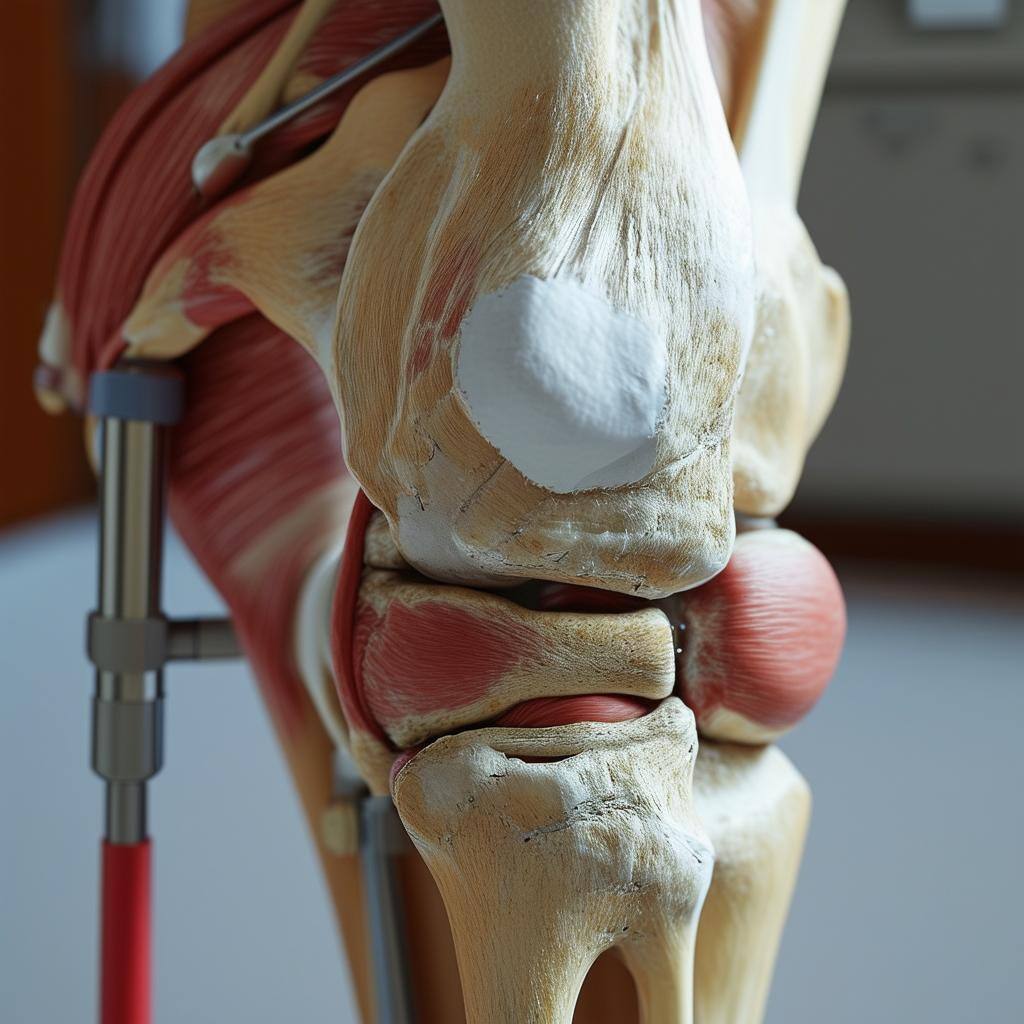.png)
Hand pain is something we've all experienced at some point. It's usually temporary and not too bothersome. But when it starts happening all the time or gets in the way of our daily activities, it's time to seek professional help.
That's where orthopedic doctors come in. They're experts in identifying and treating the causes of hand pain. In this article, we'll explore their world. We'll learn about the various ways they can help without surgery, like using medications and therapy. We'll also touch on surgical options such as tendon repair surgery and joint replacement.
Orthopedic doctors have a wide range of techniques they can use. Each one is designed not only to reduce your pain but also to improve how well your hand works. So, let's dive into the world of orthopedic doctors and discover how they bring relief to people dealing with ongoing hand pain.
Common Causes of Hand Pain
Hand pain can stem from various conditions. Knowing these common causes is essential for early intervention, effective treatment, and relief.
Arthritis
Arthritis is a major cause of hand pain. It involves joint inflammation and swelling, leading to discomfort and stiffness. There are two main types of arthritis that can affect the hands:
- Osteoarthritis (OA): OA occurs when the cartilage in your joints, which acts as a protective cushion, wears down over time. This can result in bone rubbing against bone, causing pain and limited mobility. In the hands, OA often affects the base of the thumb and the finger joints closest to the nail.
- Rheumatoid Arthritis (RA): Unlike OA, RA is an autoimmune disease where the immune system mistakenly attacks the body's own tissues. It mainly targets the lining of the joints, leading to painful swelling that can cause bone damage and joint deformity. RA usually starts in smaller joints like fingers and toes before spreading to larger joints.
Tendonitis
Tendonitis is another frequent cause of hand pain. Tendons are tough cords that connect muscles to bones. Continuous repetitive movements or sudden injuries can result in inflammation or irritation of these tendons, known as tendonitis.
In the hand, tendonitis often occurs due to repetitive strain or overuse from activities like typing, playing musical instruments, or participating in sports such as tennis or golf that involve gripping.
Common symptoms include pain at the base of your thumb or other fingers when you move or apply pressure, as well as swelling and stiffness.
Understanding these common causes can help individuals identify potential issues earlier and seek proper medical attention. It is important to differentiate between these conditions as it affects the choice of treatment. Realizing that your hand pain may be caused by something more than just normal wear and tear could be the first step towards finding relief and recovering from the condition.
Diagnosing Hand Pain
When hand pain disrupts your life, it's crucial for an orthopedic doctor to find the exact cause. Getting the right diagnosis is key to getting the proper treatment and finding relief.
Why a Comprehensive Evaluation Matters
A thorough assessment is the first step toward healing. Here’s why:
- It ensures that the pain isn't due to an easily overlooked condition.
- Recommendations tailored to your specific needs are only possible after a complete evaluation.
- Identifying the issue early can prevent more serious problems down the line.
Initial Assessment: Gathering Information
Orthopedic doctors start by collecting information about your symptoms and medical history. They take into account factors such as:
- When the pain started
- How intense it is and what it feels like
- Activities that make the pain worse or better
- Any previous injuries
- Your overall medical background
Key Diagnostic Approaches
Once they have gathered all the necessary information, orthopedic doctors use various tools and tests to diagnose hand pain:
- Physical Examination
- Looking at your hand's shape, color, and any signs of swelling
- Feeling for any abnormalities in your bones, tendons, or ligaments
- Checking for pain during movement and assessing how well your joints are functioning
- Imaging Tests
- X-rays: These can reveal bone fractures or any abnormalities in your joints.
- MRI Scans: These provide detailed images of soft tissues like ligaments and cartilage.
- CT Scans: This type of scan combines X-rays taken from different angles to create cross-sectional views of your hand's structures.
- Ultrasound: Using sound waves, this test allows doctors to see real-time images of your hand's soft tissues.
- Electrodiagnostic Testing
- For nerve-related issues, tests like electromyography (EMG) or nerve conduction studies might be used.
Each of these diagnostic tools gives doctors valuable information about what might be causing your hand pain. By combining the results, they can get a clearer understanding of your condition and develop an appropriate treatment plan.
Understanding Your Diagnosis
Orthopedic doctors use the information gathered from the evaluation process to identify the underlying cause of your hand pain. Some common diagnoses include:
- Carpal Tunnel Syndrome: This occurs when there is pressure on the median nerve in your wrist, leading to symptoms like numbness or tingling in your hand.
- Arthritis: A condition characterized by inflammation and stiffness in the joints, which can affect the hands.
- Tendonitis: Inflammation of the tendons in the hand, often caused by repetitive movements or overuse.
- Fractures: Breaks in the bones of the hand, usually caused by trauma or injury.
It's important to remember that each person's situation is unique, and your diagnosis may differ based on your specific symptoms and test results.
Looking Beyond Symptoms: Addressing Root Causes
While managing pain is an essential part of treatment, orthopedic doctors also focus on addressing the underlying causes of hand pain. This approach helps prevent future issues and promotes long-term healing.
As we transition from understanding how orthopedic doctors diagnose hand pain, it becomes evident that this is only part of the journey towards recovery. The next steps involve exploring various treatment options available once a diagnosis is made—ranging from medication and therapy to possibly surgery for more severe cases.
Non-Surgical Treatment Options for Hand Pain
When you experience hand pain, finding the right solution can make a big difference. Orthopedic doctors have various non-surgical treatments available to help. Here's a detailed look at these options:
Medications and Their Role in Pain Relief
- Analgesics: These are pain relievers that can help reduce discomfort but don't necessarily have anti-inflammatory properties. Over-the-counter options like acetaminophen fall into this category.
- Non-Steroidal Anti-Inflammatory Drugs (NSAIDs): Medications like ibuprofen and naproxen not only relieve pain but also combat inflammation.
- Topical Creams: Some patients prefer creams or gels applied directly to the hand for localized relief without systemic side effects.
- Disease-Modifying Antirheumatic Drugs (DMARDs): For conditions like rheumatoid arthritis, DMARDs can slow down disease progression.
Reducing Inflammation with Cortisone Injections
Cortisone injections are highly effective when inflammation needs to be quickly reduced. They work by delivering corticosteroids directly to the problematic area. Here's why they're popular:
- Targeted Relief: The injection goes straight to the inflamed joint or tendon, offering prompt relief.
- Duration: Benefits from a cortisone shot can last for weeks to months.
- Procedure: Performed right in the doctor’s office, it's a quick process with minimal downtime.
Resting and Supporting the Hand with Splints
Splinting is a proven method for aiding in hand recovery by:
- Immobilization: Splints keep your hand still, which is crucial for proper healing of certain conditions.
- Protection: They defend against accidental bumps or movements that could worsen the injury.
- Variety: There's a range of splints available, tailored to different parts of the hand and specific conditions.
Enhancing Hand Function through Therapy
Hand therapy includes several techniques aimed at restoring function and reducing pain:
- Exercises: Strengthening muscles and improving flexibility can help support injured areas of the hand.
- Stretches: These maintain or increase range of motion, vital for recovery and daily functioning.
- Occupational Therapy: Focuses on improving your ability to perform daily tasks through adaptive strategies and exercises.
- Aquatic Therapy: Water resistance helps in rehabilitation without placing undue stress on hand structures.
Investigating the Potential of Alternative Approaches
In addition to traditional medicine, some patients find relief through alternative therapies:
- Acupuncture: This ancient practice involves inserting thin needles into specific body points, potentially easing pain through stimulation of nerves and muscles.
- Herbal Supplements: Natural remedies like turmeric or ginger are said to have anti-inflammatory properties but should be used cautiously under medical guidance.
Each patient's journey towards relief from hand pain is unique. By considering these non-surgical treatment options, orthopedic doctors tailor plans that best suit individual needs without immediate resort to surgery.
Surgical Interventions for Hand Pain
Tendon Repair Surgery
Tendon injuries or conditions such as trigger finger can significantly impact hand function. In cases where tendons are severely damaged:
- Indications for Surgery: Persistent pain, loss of motion, or tendon ruptures.
- Surgical Techniques: Procedures include tendon sheath release or tendon grafting.
- Recovery Process: Rehabilitation involves splinting and hand therapy to regain strength and flexibility.
Restoring Joint Function with Replacement Surgery
Advanced arthritis or joint degeneration may necessitate joint replacement surgery to alleviate pain and restore hand function:
- Benefits: Increased mobility, decreased pain, and improved quality of life.
- Considerations: Material used in artificial joints, potential risks, and the longevity of the implant.
Nerve Repair and Reconstruction
Nerve problems in the hand can cause pain, numbness, and weakness. Surgical options often address these issues effectively:
- Carpal Tunnel Release: A common procedure to relieve pressure on the median nerve.
- Nerve Grafting: Used when nerves are severely damaged and require bridging gaps.
Fixing Fractures through Surgical Stabilization
Complex hand fractures might need surgical intervention to ensure bones heal correctly:
- ORIF (Open Reduction and Internal Fixation): The use of plates, screws, or rods to stabilize broken bones.
- Bone Grafting: May be necessary to facilitate bone healing in cases with significant bone loss.
Reattachment Challenges: Replantation
In traumatic situations where fingers or hands have been amputated:
- Replantation Surgery: Microsurgical technique reconnecting bones, tendons, nerves, and vessels.
- Postoperative Care: Intensive rehabilitation is critical for sensory and functional recovery.
These surgical treatment methods offer hope for those suffering from persistent hand pain due to tendon injuries, joint issues, nerve problems, fractures, or traumatic amputations. With careful consideration and expert care from orthopedic surgeons specializing in hand conditions, patients can embark on a path toward relief and regain the use of their hands.

The Importance of Consulting an Orthopedic Hand Specialist
Persistent or debilitating hand pain requires immediate attention and care. What sets orthopedic doctors specializing in hand conditions apart is their deep understanding of the complex structure and movement of the hand. With their knowledge of both non-surgical and surgical approaches, they can provide complete care for patients.
Hand specialists are more than just doctors - they are your partners in finding relief and restoring hand function. They combine their extensive knowledge with practical insights gained from years of experience.
Why Choose a Hand Specialist in Maryland?
Living in Maryland has its advantages, especially when it comes to orthopedic care for the hand. The state is home to many renowned orthopedic practices led by hand specialists. These experts offer:
- Thorough Assessments: They carefully evaluate your condition, taking into consideration your daily activities and medical background.
- Customized Treatment Plans: Recognizing that each person and hand pain is unique, they create personalized plans tailored to your specific needs.
- Comprehensive Approach: Instead of just focusing on relieving symptoms, they prioritize overall recovery and regaining function, helping you get back to your normal life as much as possible.
Whether you're dealing with arthritis impacting your grip strength, tendonitis affecting your ability to play the piano, or a traumatic injury making everyday tasks difficult – hand specialists in Maryland have the specialized expertise needed to support you during your healing process.
FAQs (Frequently Asked Questions)
What are some common causes of hand pain?
Common causes of hand pain include arthritis, such as osteoarthritis and rheumatoid arthritis, as well as tendonitis caused by repetitive movements or injuries.
How do orthopedic doctors diagnose hand pain?
Orthopedic doctors use various diagnostic methods, including physical examinations and imaging tests, to accurately identify the source and extent of hand pain.
What are the non-surgical treatment options for hand pain?
Non-surgical treatment options for hand pain include medications for pain relief, cortisone injections to reduce inflammation, splinting to support the hand, hand therapy programs, and alternative therapies like acupuncture or herbal supplements.
What are some surgical interventions for hand pain?
Surgical interventions for hand pain may include tendon repair surgery for severe tendon injuries, joint replacement procedures for advanced arthritis or joint degeneration, nerve repair and reconstruction for nerve entrapments or damage, surgical stabilization for complex hand fractures, and replantation surgery for traumatic amputations of fingers or hands.
Why is it important to consult an orthopedic hand specialist for hand pain?
Consulting an orthopedic hand specialist is crucial when experiencing persistent or debilitating hand pain because they specialize in treating hand conditions and have a comprehensive understanding of both non-surgical and surgical management strategies.



Comments (0)